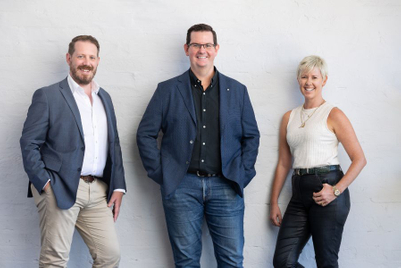
Alone among the agency network behemoths, Dentsu International lacked a flagship health offering. With Monday’s official unveiling of Dentsu Health, that is about to change in a major way.
The new practice will tap into several Dentsu agency brands, including media giant Carat, digital-minded creative shop 360i and data mainstay Merkle, recently refocused as a customer experience management (CXM) specialist. It will draw upon the experience of the more than 2,000 people at Dentsu already working on pharma, wellness and other health-adjacent business.
Well-regarded health marketing veteran Matt McNally joined Dentsu Health last month and will lead the practice as global president. Kent Groves, Ph.D., who spent the last 11 years in health strategy leadership roles at Merkle, will serve as global chief strategy officer.
Dentsu’s existing resources – and the flexibility with which the company deploys them – are central to the practice’s appeal. And yes, Dentsu Health promises a single point of contact for a range of services, a big selling point with clients tired of juggling multiple agencies. But its definition of what constitutes “health” is an expansive one, with the company happy to pluck CPG, fitness, beauty, technology, retail or lifestyle experts from sibling firms if a particular engagement calls for it.
According to McNally, clients are calling for a marketing partner able and willing to assemble bespoke teams, rather than impose its own way of doing business.
“During my time at Outcome Health, clients would still call me for recommendations – ‘I need creative,’ ‘I need media,’” he said. “They like a lot of agencies out there, but they need a model that’s more nimble: One that has health talent, but can activate talent from outside health.”
He added that Dentsu Health is set up in a way to accommodate evolving – and escalating – consumer expectations for health brands. “Today, they’re the same for health as they are for cars or anything else.”
While McNally and Groves declined to share even an approximate revenue figure for the business to be grouped under the Dentsu Health banner, Groves allowed that, per the most recently published MM+M Agency Revenue table, “We’re entering the U.S. market as a top-five agency.”
Groves added that one of the benefits of the Dentsu Health organizational scheme is that it affords greater visibility into the company’s health-related business.
“We never really had a line of sight into what everyone else was working on. There were so many different agencies that sometimes you’d find yourself essentially pitching against yourself,” he explained. “Now, everybody’s so excited. ‘Oh, I didn’t even know we had that.’”
Merkle Health, the biggest of the Dentsu network health practices, will continue as a standalone brand, though Groves noted that Dentsu Health has built some flexibility into the way Merkle presents to would-be clients.
“There are a couple of different scenarios,” he said. “We can go to market as Dentsu Health and pull in the people from Merkle we need. We can go to market as Merkle Health powered by Dentsu Health, which allows us to leverage the Merkle brand equity but recognize that it’s part of a broader global entity. Or we can go to market as Dentsu Health powered by Merkle Health, which says we’re offering you the great global capabilities but we’re also bringing in our best Merkle analytics and CXM chops.”
“What we’re doing, in essence, is organizing the client solution against the client’s business challenges. We find out the three or four business challenges you’re trying to solve, then we show up in an appropriate way, rather than leading with our story,” McNally added.
As for his arrival to lead the new Dentsu offering, McNally said he never expected to return to agency life. After spending nearly 15 years at Publicis-owned shops, the last two as president of Digitas Health LifeBrands and chief media officer of Publicis Health, he took on the challenge of leading the post-scandal Outcome Health.
During his tenure there, the company started the arduous process of winning back the trust – and business – of companies and brands that had allegedly been defrauded. By all accounts, McNally played a pivotal role in the resuscitation process. The company ultimately paid a $70 million fine to settle the preexisting charges against it and, after reestablishing its footing, merged with fellow point-of-care firm PatientPoint to form PatientPoint Health Technologies.
When the Dentsu opportunity presented itself, McNally was ready for his return. “What my time at Outcome taught me was that you can work fast and you can still do beautiful creative work, but you need to throw out legacy models,” he said. “When I first sat down with Jacki [Kelly, CEO, Dentsu Americas], the model intrigued me: Quick, but doing great work and with an open ecosystem of partners.”
A few weeks into his new gig, McNally sounds re-energized. “There’s a need for the work in pharma, especially the creative, to evolve – well, we are already known for really great creative work, plus the size and scale we have is phenomenal.”
And he’s thrilled to be back in an agency environment. “I said to Kent, ‘It feels like coming home.’”
This story first appeared on mmm-online.com.



.jpg&h=334&w=500&q=100&v=20250320&c=1)



.png&h=334&w=500&q=100&v=20250320&c=1)
.png&h=334&w=500&q=100&v=20250320&c=1)

.png&h=334&w=500&q=100&v=20250320&c=1)

.png&h=334&w=500&q=100&v=20250320&c=1)


.jpg&h=268&w=401&q=100&v=20250320&c=1)
.jpg&h=268&w=401&q=100&v=20250320&c=1)



